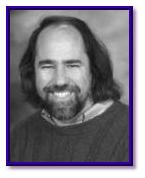October 07, 2004
Rosy Scenarios
I came across a post by Ralph Johnson the other day about an ambitious new project being undertaken by legendary object-oriented methodologist Grady Booch. Here are a few thoughts about this enterprise, in no particular order:
This is a noble, eminently worthwhile, and potentially even monumental undertaking.

This will demand pattern mining on an industrial scale not heretofore seen. IBM is poised to become, in effect, the Peabody Coal Company of Pattern Mining. Properly executing such a programme will take a cadre of specialists with an unusual mix of analysis skills, domain expertise, organizational accumen, and programming knowledge. Oh, and a rich command of the patterns and sofware architecture literature as well. I have no idea whether Big Blue has an underemployed legion of such talent awaiting remobilization. Is this a New Deal-style WPA for pattern miners?
 Kudos to Booch for recognizing the seminal role played by Bruce Anderson's groundbreaking architectural handbook workshops at OOPSLA during the early '90s in laying afoundation for the Gang-of-Four's subsequent efforts, and ultimately, this work itself.
Kudos to Booch for recognizing the seminal role played by Bruce Anderson's groundbreaking architectural handbook workshops at OOPSLA during the early '90s in laying afoundation for the Gang-of-Four's subsequent efforts, and ultimately, this work itself.
Booch may find himself in a position to confirm or refute a conjecture that Joe Yoder and I made a few years ago to the effect that the mostly widely deployed high-level architecture out there, despite widespread claims to the contrary, is, in fact, the BIG BALL OF MUD. To do so, however, might require an impolitic degree of candor, as well as a degree of pick and shovel work beyond the envisioned scope of this effort. Alas, the path of least resistance will likely be to simply parrot each system's high-level brochures.
There is a danger here of allowing this handbook to turn into a coffee table book; of producing an Architectural Digest; of pumping out self-serving, mutually congratulatory puff pieces, rather than objective depictions of how the portrayed systems are really put together. It's easy to imagine an unholy alliance between consultant and client that extols the fictional virtues of set-piece paper palaces, rather than the hard fought victories won out in the trenches. My hope is that in their search for "inner beauty", the authors will strive to see beyond the two-dimensional cartoons and into intricacy and richness of the code itself.
Posted by foote at October 7, 2004 01:26 PM